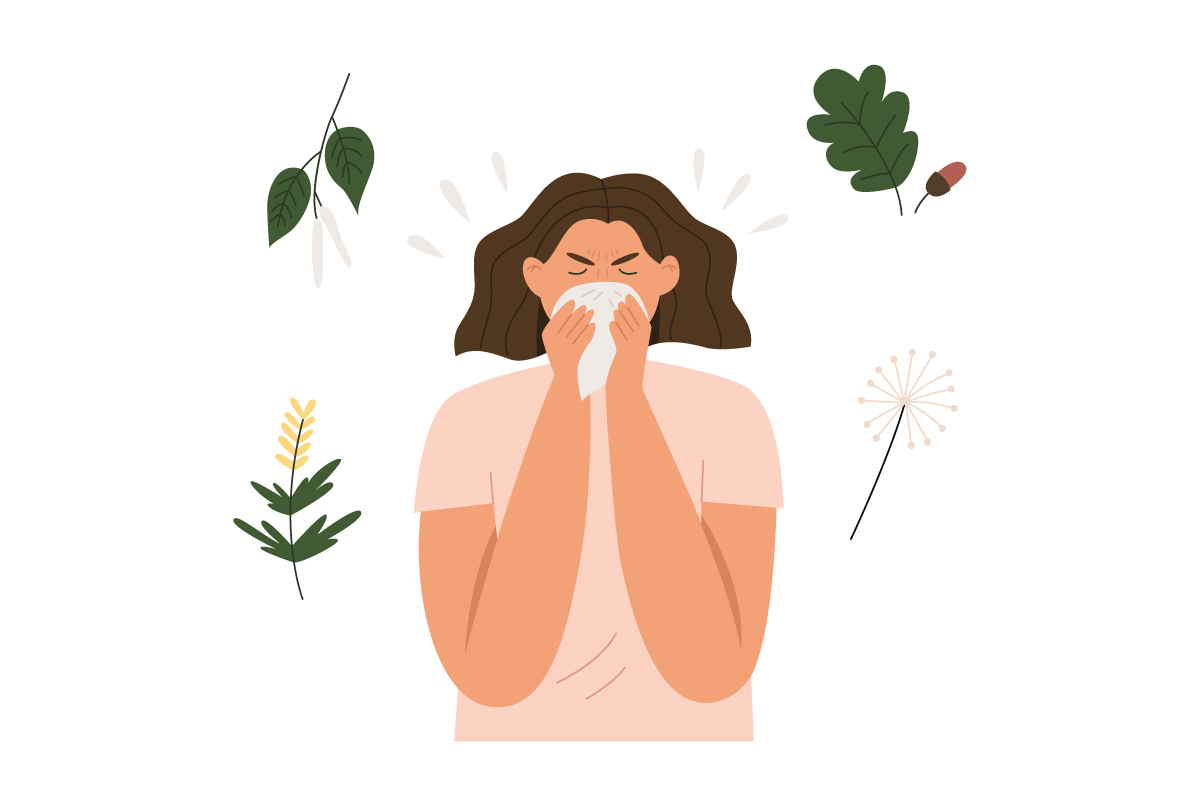If you sneeze and sniffle your way through the springtime, you’re not alone. Many people struggle with seasonal allergies, which tend to peak in the spring when everything starts to bloom again.
WellTuned spoke with Dr. Bertram Prosser, a medical director with BlueCross BlueShield of Tennessee, to find out how to cope with seasonal allergies.
Who is affected by seasonal allergies?
Dr. Prosser: About one-quarter of all adults suffer from a seasonal allergy. Non-Hispanic White adults are more likely to have seasonal allergies than Hispanic, non-Hispanic Black and Asian adults. People with a family history of allergies are more likely to develop allergies, too. People with asthma, eczema, or other atopic diseases are also more likely to have allergies.
The classic symptoms of a seasonal allergy develop in response to an allergen in the environment, like pollen. These symptoms can include:
- runny nose
- sneezing
- itchy or watery eyes
You might also experience some congestion, headache, an itchy throat and fatigue.
If you develop any of those common seasonal allergy symptoms but you’re not sure if you have allergies or just a lingering cold, see your doctor. Your doctor may want to do some allergy testing and develop a treatment plan to help you.
Spring is a peak season for seasonal allergy symptoms because of the amount of pollen in the air. However, ragweed tends to start blooming in late summer and throughout the fall, creating sneezy, sniffly havoc for people with those allergies.
Why is the seasonal allergy situation so bad in Tennessee?
Dr. Prosser: The severity of seasonal allergy can vary, depending on where you live. In general, the further south that you live, the earlier the allergy season starts—and the worse the allergies are. That’s because the warmer weather in the south allows for more pollen to be released into the air.
These Tennessee cities are the most challenging places to live with allergies:
- Chattanooga
- Memphis
- Knoxville
- Nashville
How to manage your allergy symptoms
Dr. Prosser: There are a variety of things you can do to help manage or even reduce your seasonal allergy symptoms.
- Use quality air filters in your home. A HEPA filter can remove more than 99% of dust, pollen and other airborne particles that can trigger your allergy symptoms. If that’s not an option, change or upgrade the filters used with your home air conditioner.
- Close the windows. Run the air conditioning instead.
- Vacuum frequently. Opening doors allows allergens to enter your home. You can also track pollen in on your shoes.
- Check the allergy conditions in your area. You can search for your city or town on the Weather Channel website, which includes a three-day outlook for the worst offenders: tree, grass, and ragweed pollen counts.
- Stay indoors. That might mean timing exercise or other outdoor activities for when pollen counts are lower. You might want to avoid mowing the lawn or doing other yardwork when pollen counts are high.
- Take a shower before bed. Rinse pollen from your hair and body so you won’t breathe in any lingering allergens while you sleep. Be sure to wash the clothes that you wore outside, too.
- Wear a mask. The masks that everyone wore during COVID-19 can also help protect you from pollen and other environmental allergens.
- Use your allergy medication as directed. If your doctor has recommended that you take a particular allergy medication to control your symptoms, be sure to follow through – even if you feel fine.
“It’s important to remember that seasonal allergies are a common condition, and there is no cure,” says Dr. Prosser. “However, there are many things that you can do to manage your symptoms and reduce your exposure to triggers. Try to find a combination of strategies that works best for you.”
Dr. Prosser explains what you need to know about RSV.
Get more information about specific health terms, topics and conditions to better manage your health on bcbst.com. BlueCross BlueShield of Tennessee members can access wellness-related discounts on fitness products, gym memberships, healthy eating and more through Blue365®. BCBST members can also find tools and resources to help improve health and well-being by logging into BlueAccess and going to the Managing Your Health tab.


